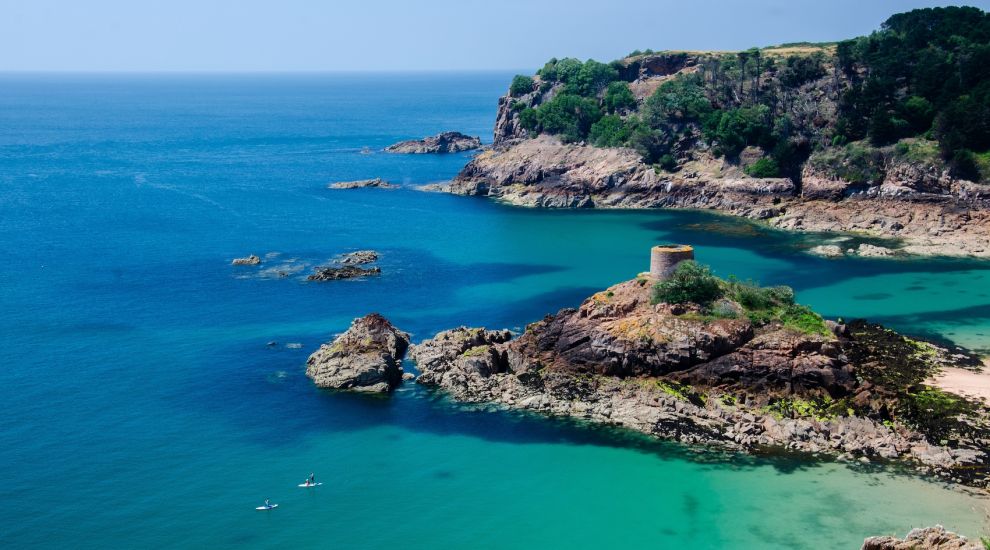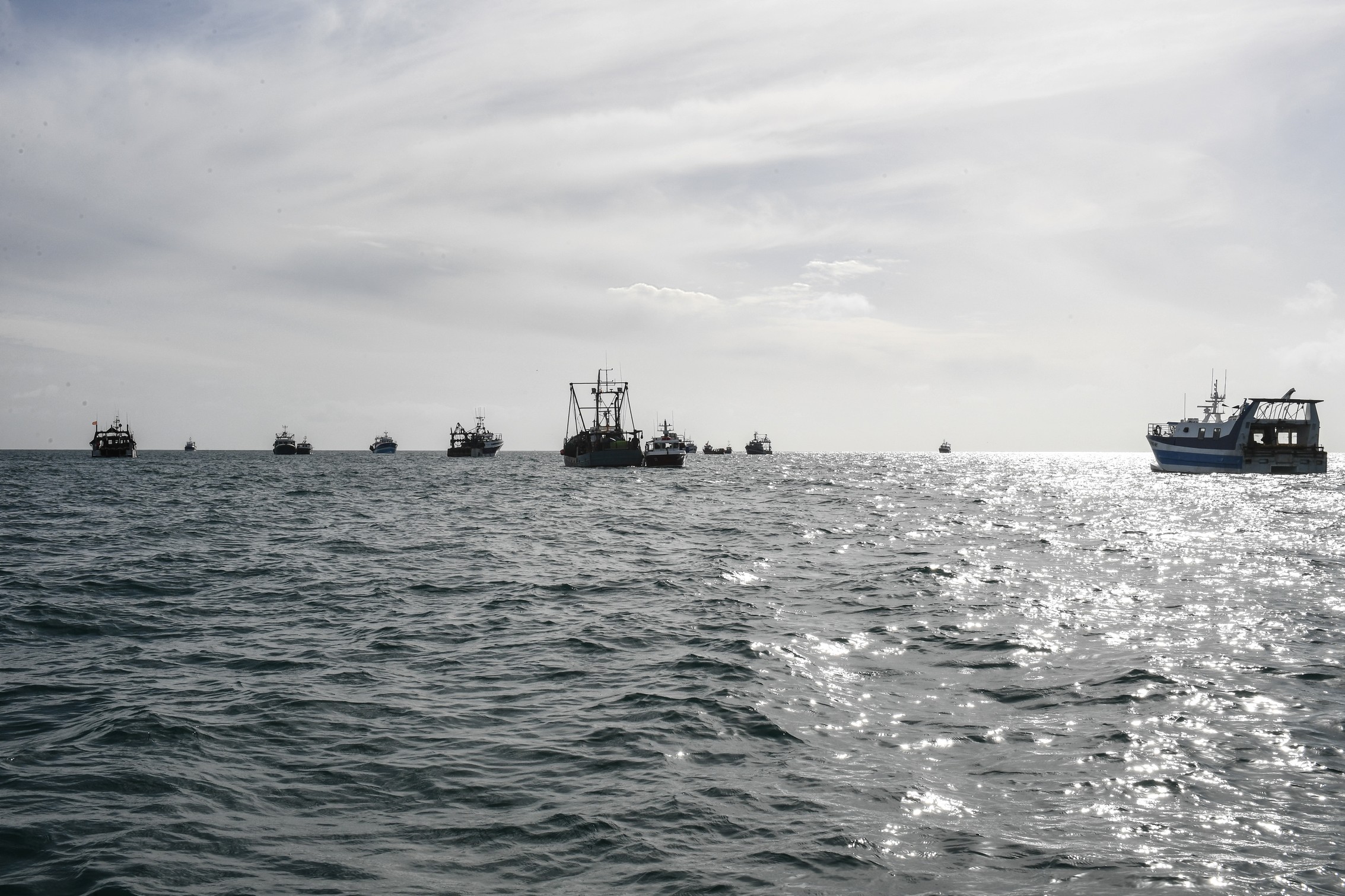


Politicians have begun debating wide-ranging plans to protect the marine life in Jersey’s territorial waters.
The debate surrounding the Marine Spatial Plan – which sets out how the island’s ‘marine estate’ should be managed in future – started in yesterday afternoon's States sitting, and is set to continue throughout the day.
The plan, presented by Environment Minister Steve Luce, proposes to increase marine protected areas from 6% to over 20% of Jersey's waters.

Pictured: The draft Marine Spatial Plan was published earlier this year.
These zones would prohibit towed fishing gear and destructive processes such as dredging, while also establishing a three-tier framework consisting of Regulated Fishing Zones, Seabed Protection Zones, and highly-protected No Take Zones.
A visitor centre has also been proposed as part of the new plans, and it also includes the potential to create wildlife “wardens”.
More than 150 comments from local businesses, charities, organisations and individuals, were taken into account when putting together the latest draft - which reduced protected areas from an initially proposed 27% to 23%.
Environment Minister Steve Luce opened the debate in the Assembly on Tuesday by speaking about the Island’s growing responsibility for managing its territorial waters.
"This is a moment of change for Jersey," he said.
He described the plan as a shift from traditional maritime practices to modern management strategies using technologies such as 3D seabed imaging and habitat modelling.

Pictured: Environment Minister Steve Luce said the decision to reduce the size of the protected area was made after consultation with concerned fishers.
The Marine Spatial Plan, he argued, sets Jersey on a path towards a "thriving marine environment" that will benefit both people and nature for generations to come.
However, he called for a phased approach because sudden closures could severely impact the fishing industry.
Responding to Deputy Luce’s opening speech, Deputy Hillary Jeune criticised the reduction of Marine Protected Areas from 27% in the original draft to 23% and called it a "political choice" by the Environment Minister.
Deputy Jeune also cited concerns raised by the Chief Minister in 2021, who described heavy trawling and dredging as "pure vandalism of our seabed" when he made an unsuccessful attempt to create a marine park covering more than a third of Jersey’s waters.
Her comments come after a review of the proposals by the Environment, Housing, and Infrastructure Scrutiny Panel found the current iteration of the plans failed to strike the right balance between marine conversation and the needs of the fishing industry in a report published last week.

Pictured: Deputy Hillary Jeune criticised the reduction of Marine Protected Areas from 27% in the original draft to 23%.
The report accused the Environment Minister of not going far enough to stay in line with international obligation and warned that delaying protections could result in damage to sensitive habitats like maerl beds, formed by red algae, which provide shelter for marine species and help store carbon.
"The panel believes the minister made a short-term compromise, pushing the final decision on the scope of the marine protected areas into an undefined future," she said.
Deputy Jeune said that Deputy Luce’s proposal would reduce the amount of protected mearl beds by over 50%.
She explained: “Mearl is Jersey's equivalent to a coral reef, but the reduction by the minister means that the protection of Jersey's mole habitat has gone from 88% in the original proposal to just 33% protected in the minister's current proposal.
“Today, because mearl is a habitat in which scallops thrive, it is also good fishing areas for scallop fishers, both divers and dredgers.
“The marine spatial plan states it clearly, so I don't really have to: 'The use of mobile gear presents the biggest threat to the integrity and viability of key habitats, such as mearl, sea grass and other sedimentary habitats.'
“The panel heard how mearl takes a very long time to recover if damaged. It makes no ecological or sustainable planning sense for these to have been removed. “
The Scrutiny Panel, chaired by Deputy Jeune, also put forward two amendments to the plan that were discussed yesterday.
The first calls on the minister to reinstate several Marine Protected Areas that were originally proposed by former Environment Minister Jonathan Renouf in the first iteration of the plans.
If approved, the offshore reefs at the Ecréhous, Les Anquettes and the Minquiers would receive wide-ranging protection from fishing.
The second amendment calls for a “robust” monitoring framework to be established to ensure the Marine Spatial Plan is implemented effectively and transparently by current and future governments.

Pictured: Deputy Alex Curtis also sits on the Environment, Housing, and Infrastructure Scrutiny Panel.
Deputy Alex Curtis clarified during the debate that the panel's amendments do not propose an outright ban on fishing practices.
He explained that while mobile gear would be restricted in marine protected areas, activities such as scallop diving, line fishing, and netting would still be permitted.
Separately, Deputy Renouf has also lodged an amendment to the plan calling for all decisions to be made within the next two years to provide a “clear” timeline and accountability.
The debate that followed centred largely on the balance between environmental protection and economic interests, particularly regarding the use of mobile fishing gear such as dredging.
Deputy Jeune emphasised that dredging would still be permitted in approximately 73% of Jersey's waters, while Deputy Luce raised concern about the immediate impact on fishing vessels that heavily depend on specific zones.
“Agreeing these amendments will put some fishers out of business,” he said.
The fishing industry's concerns featured prominently in the discussions.
A letter from Jersey's Fishermen's Association, read out during the debate, warned that proposed amendments could increase conflicts with French fishers and force Jersey's fleet into more dangerous and distant waters.

Pictured: The fishing industry's concerns featured prominently in the discussions yesterday.
Deputy Andy Howell presented concerns from stakeholders that approving the proposed amendment could affect 11 local fishing boats and their crews.
Deputy Tom Coles highlighted research from Plymouth University during the debate, noting that one square meter of maerl – a type of seaweed – can support up to 173 fish species and contributes an estimated £3.3 million to fisheries in Jersey and France.
"If these areas do not contain fragile ecosystems, they can be released back to fisheries. But if damaged, they may never recover, leaving us with nothing," he warned.
Deputy Sam Mézec emphasised the importance of a "just transition" in addressing environmental changes.
"We must support the needs of working people rather than asking them to bear the brunt of it," he said, adding that “the anger that we would stoke by the economic and social damage would be hard to get over”.
Constable Mike Jackson, meanwhile, said he would reject the proposed amendments because they fail to address fishermen's needs adequately.
"My reasons are simple: the amendment has failed to embrace the needs of our fishing industry or accommodate changes for fishermen,” he said.
Deputy Kirsten Morel acknowledged the environmental impact of current fishing practices, saying: “I have dived on dredged maerl beds, and the devastation is horrific.”
Despite this, he was supportive Environment Minister's version of the plans.
He argued "the balance is right" given that “the marine economy is on the edge”.
Comments
Comments on this story express the views of the commentator only, not Bailiwick Publishing. We are unable to guarantee the accuracy of any of those comments.